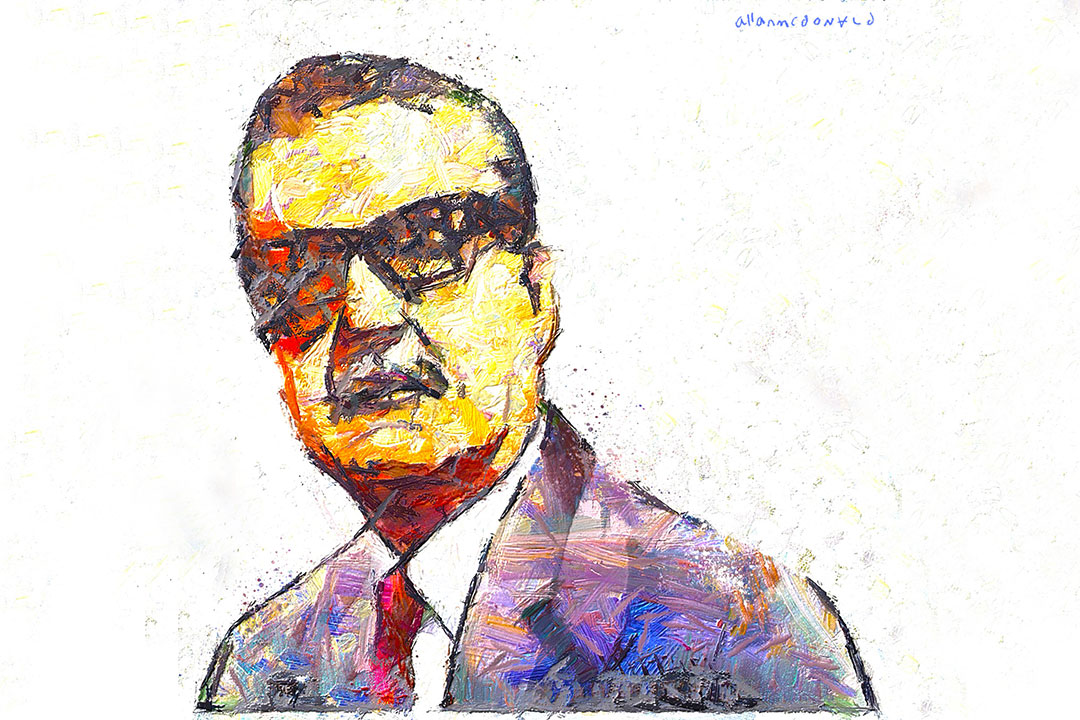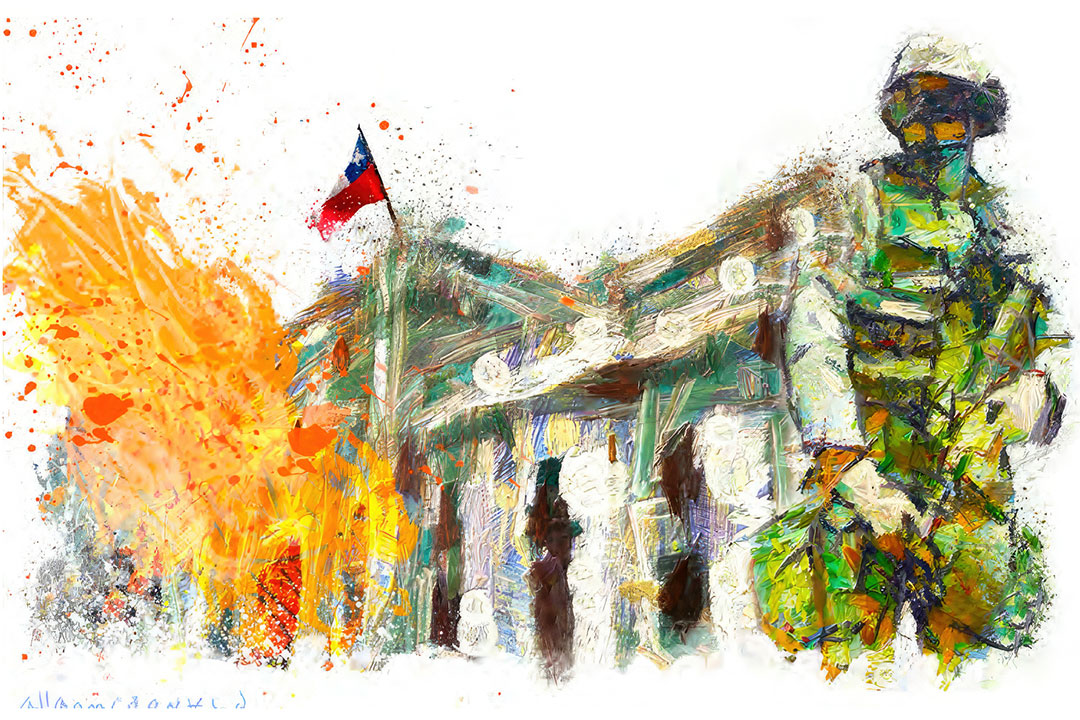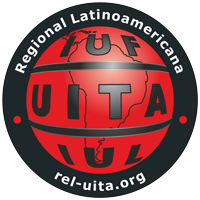Never forget
This September 11 marked the 50th anniversary of the civilian-military coup that overthrew the Salvador Allende government and entrenched Augusto Pinochet in power. The dictatorship took Chile hostage and set out to violently wipe out its peaceful path to socialism, turning it into a “testing ground” for the economic, political, and social far right. Today, Chilean society is still throwing off the shackles left by that operation aimed at exterminating hope.
Carlos Amorín
15 | 09 | 2023

Imágen: Allan McDonald
I just finished rereading the article I wrote in 2018, which has been republished by my colleagues at IUF Latin America, with some minor revisions, to commemorate the 50th anniversary of the coup d’état that, along with assassinating Salvador Allende, shattered the hope that had been sparked by that experience in millions of people around the world.
In that article, I tried to convey the depth of the economic, social, and political transformation that was starting to take shape in Chile, by narrating my own experiences and that of others. The great events in History are forged by human beings, organized together, with each individual contributing their bit. There is strength in numbers, yes, but it is the individuals who are the driving force.
Today, 50 years on from that September 11, and in light of the process currently unfolding in Chile, we need to vindicate Salvador Allende and restore him to his rightful place, and with him the first electoral victory of a leftist front in Latin America: the Popular Unity front (Unidad Popular, or UP).
The aims and dreams were all there: a new institutional system in politics established through a constitutional reform; the expansion of the timid agrarian reform initiated by former Christian Democrat president Eduardo Frei Montalva (1964-1970); the nationalization of copper and mining in general, as well as of the largest private monopolistic company; a planned economy; the creation of the area of social ownership of companies; a national minimum wage; and pay equality regardless of gender or age.
Huge and fruitful changes were implemented in healthcare, nutrition among the poorest, especially children, improved, and we could go on listing the many macro and micro revolutions that this experiment that came to be known as “electoral socialism” or “the Chilean path to socialism,” managed to achieve in its scarce two and a half years of government.
Most of the changes that the UP aspired to and set out to achieve would now amount to a true social, economic, political, and cultural revolution anywhere in the world.
For progressives, humanists, and socialists across the globe, the UP’s agenda was a beacon that illuminated a possible path to social justice, without a dictatorship of the proletariat and through democratic means.
Utopia? Naiveté? Voluntarism? More like a deep understanding of the urgencies of a people, and a project aimed at building a free, fair, and sovereign country.
Of course, all of this could not have been attempted without intelligence, the ability to communicate, leadership, and, why not, political boldness. Those goals were set forth in the “First 40 Measures” that the UP committed to upon taking office.[i] However, while securing a victory in the 1970 elections, the Allende government was born with a death sentence hanging over it, issued by domestic and foreign assassins.
Thanks to research conducted by Peter Kornbluh,[i] we now have documentary proof that just nine days after Allende took office, one of the most conspicuous representatives of the Chilean patrician class, Agustín Edwards Eastman, then owner of the rightwing newspaper El Mercurio, among other businesses, met at the White House with Henry Kissinger, national security advisor to U.S. president Richard Nixon,[ii] along with Nixon himself and CIA director Richard Helms.
Some days after the coup, Nixon and Kissinger congratulated themselves. “In Eisenhower’s time we would have been treated as heroes,” Kissinger remarked, according to the transcript of a now declassified conversation.
The declassified documents obtained by Kornbluh patently show that the United States had never, ever been willing to tolerate the Chilean experience, which it considered, thanks to Kissinger and others, “a direct threat” to its national security that could spread across Latin America.
In addition to the book, first published in 2003 and now expanded and updated, there is a four-part documentary (Operation Chile) that shows the more salient points of Kornbluh’s investigation. The first part aired on Chilean television last September 5, on Chilevisión (Channel 11), and it has been announced that the other three parts will be broadcast weekly (one per week) during the month of September.[iii][i] See the recently republished book The Pinochet File: A Declassified Dossier on Atrocity and Accountability, by Peter Kornbluh, director of the Chile and Cuba Documentation Projects of the U.S. National Security Archive. The author examined 25,000 U.S. documents on Chile, which were declassified through his efforts under the research work conducted by him over the course of more than 40 years. Drawing on secret archives of the CIA, the Department of State, the National Security Council and other U.S. government agencies, Kornbluh reconstructs how the White House tried to prevent Salvador Allende’s presidential inauguration, with the help of the Chilean entrepreneur Agustín Edwards Eastman, then owner of the rightwing newspaper El Mercurio, who played a key role in these efforts. He also shows how support for the dictatorship of Augusto Pinochet was furthered by Henry Kissinger, the mastermind behind U.S. intervention in Chile. This support continued even after the assassination attempt ordered by Pinochet that killed Orlando Letelier and Ronni Moffitt in Washington D.C., in 1976.
The investigation by this U.S. historian exposes the methodical planning of the underhanded attack by the United States against the Allende government, which included plunging the economy into chaos, covertly financing the opposition, spurring the armed forces into staging a coup, assassinating the army commander-in-chief, René Schneider, a general loyal to the constitution, to leave the way open for the coup plotters, and a long and macabre list of etceteras.
The Chilean armed forces–an organization with Prussian, that is, neo-Nazi roots—carried out its orders to the letter: not only were they to overthrow Allende and his government, not only were they to deal a fatal blow to “the peaceful path to socialism,” they had to, above all, erase from the map and from history any trace of popular organization and the pockets of resistance and rebellion,[i] and instill terror throughout popular sectors, ensuring the radicalization of inequality and the “kidnapping” of the country to use it as a testing ground for the implementation of a savage neoliberalism according to the guidelines of the so-called “Chicago Boys.”

Image: Allan McDonald
That penchant of Chile’s political establishment for using the military to brutally repress and massacre its people—as it did under the civilian-military dictatorship headed by Pinochet—was not new.
Chilean history is full of dramatic examples of brutal crackdowns against peaceful demonstrations of organized workers demanding their rights.
Perhaps the most emblematic case is the mass killing of more than a thousand men, women, and children at the Santa María School, in the northern city of Iquique, at the hands of the Chilean army and navy, on December 21, 1907. The victims of this slaughter were striking saltpeter workers and their families.
The history of this murderous repression is poignantly narrated in the song “Cantata de Santa María de Iquique,” composed by Luis Advis and performed by the Chilean folk music band Quilapayún.[i]
It is well worth listening to. Rarely does a work of this magnitude reflect so vividly the plights and tragedies of a working people.
With the 1973 coup, the Chilean military, therefore, fulfilled their age-old bloody mandate of defending the interests of the national elite, “the owners of the country.” They even led the design—under the aegis of the eternal Kissinger—and implementation of Operation Condor, a repressive coordinated effort involving Chilean, Argentine, Paraguayan, Bolivian, Uruguayan, and Brazilian military aimed at persecuting and wiping out all alleged “communists” in the region.
Even now at 100 years of age, Mister Kissinger, his hands drenched in Latin American blood, continues to walk freely and with impunity.
The Chilean dictatorship, besides establishing the most radical neoliberal economic model ever known and imposing an authoritarian constitution that muzzles its people, as well as a puppet and genuflecting political regime, also spread terror through the everyday control and manipulation of the social imaginary. For this, it relied on the complicity of all the media, almost without exception, a media that was clearly run by a business elite favorable to the government.
Decades prior, Nazi politician Joseph Goebbels, who served as the Third Reich’s minister of public enlightenment and propaganda from 1933 to 1945, had already coined the phrase “Lie, lie, lie, because something will stick.”
Pinochet and his civilian and military minions no doubt assimilated this lesson and applied it consistently, protected by impunity and the monopoly they held on “the truth.” They used it to manipulate public opinion, for example, through historical revisionism campaigns aimed at discrediting Allende, the self-determination of his government, and his capacity for managing the economy, and at fabricating a narrative characterized throughout by lies and fear.
The dictatorship left a cadre of hardcore right-wingers of rancid neo-Pinochetist stock (if not directly fascist) entrenched in power, who continue to brandish Chilean Goebbelsian narratives to create tension in the public debate, sow fear, and shift the focus away from the central issues the country really needs to discuss in order to collectively overcome the military era and its persistent legacies.
The negotiations for the adoption of a new constitution that will erase the last vestiges of Pinochetism are critical for paving a possible path to resume the march toward a more just, freer, more democratic, and more solidarity-based society and fulfill the prophecy voiced by Salvador Allende when he last spoke to the Chilean people from the presidential palace of La Moneda, as bombs rained down on it: “Sooner rather than later, the great avenues will open again and free men will walk through them to build a better society.”
As we revisit this stretch of the region’s history, an analysis of the meaning of democracy is still pending, an examination of how attempts to seize control of the region’s countries involved bloodshed and regression for Latin Americans and how that happened under the auspices of what many have called “the greatest democracy on Earth.”
Where are the real enemies of Latin America’s development and self-determination? What contributions can organized workers make in this sense? The memory of the rebellious and brave Chile and of Salvador Allende is summoning us.
No forgetting or forgiving
In the immediate aftermath of the 1973 military coup in Chile, U.S. president Richard Nixon and his national security advisor Henry Kissinger congratulated themselves. “In Eisenhower’s time we would have been treated as heroes,” Kissinger remarked. The transcript of that conversation, which for decades remained confidential, is one of the more than 25,000 declassified U.S. documents on Chile.
i https://interferencia.cl/articulos/las-primeras-40-medidas-del-gobierno-de-la-unidad-popular.
ii See the recently republished book The Pinochet File: A Declassified Dossier on Atrocity and Accountability, by Peter Kornbluh, director of the Chile and Cuba Documentation Projects of the U.S. National Security Archive. The author examined 25,000 U.S. documents on Chile, which were declassified through his efforts under the research work conducted by him over the course of more than 40 years. Drawing on secret archives of the CIA, the Department of State, the National Security Council and other U.S. government agencies, Kornbluh reconstructs how the White House tried to prevent Salvador Allende’s presidential inauguration, with the help of the Chilean entrepreneur Agustín Edwards Eastman, then owner of the rightwing newspaper El Mercurio, who played a key role in these efforts. He also shows how support for the dictatorship of Augusto Pinochet was furthered by Henry Kissinger, the mastermind behind U.S. intervention in Chile. This support continued even after the assassination attempt ordered by Pinochet that killed Orlando Letelier and Ronni Moffitt in Washington D.C., in 1976.
iii Nixon was in office from 1969 to 1974, when he resigned under pressure stemming from the Watergate scandal.
iv Available to watch at: https://www.chilevision.cl/operacion-chile-top-secret/capitulo-completo/operacion-chile-top-secret.
v See, also, the film Cabros de mierda, by Chilean filmmaker Gonzalo Justiniano, available at https://vimeo.com/468355713. Access with the code “cabroschile2020”.
vi You can listen to the song on Youtube at: https://www.youtube.com/watch?v=fVX_c54xA5U.
